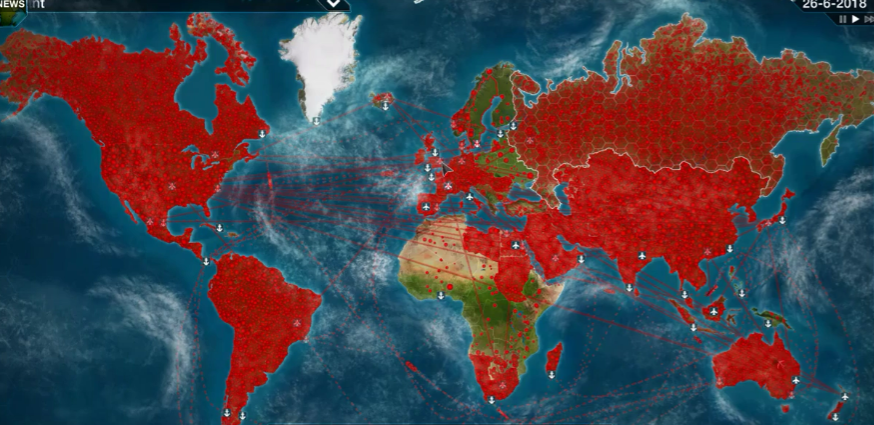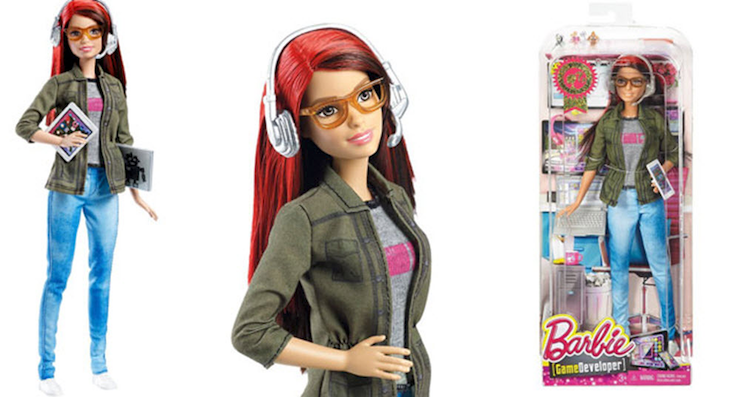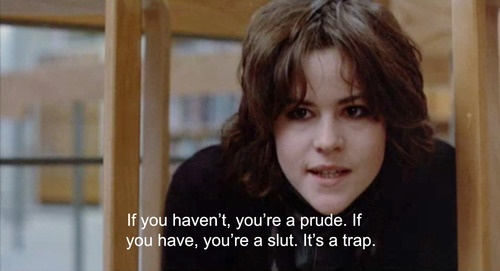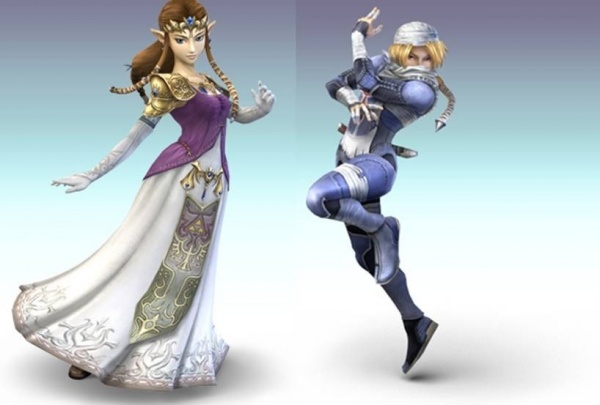In the last month or so there has been lots of discussion going on about and around the confederate flag here in the United States. Ultimately, the flag has been removed from most state government buildings and is no longer being sold in a number of big box and online stores. [Feature image credit: Rebecca Cohen]
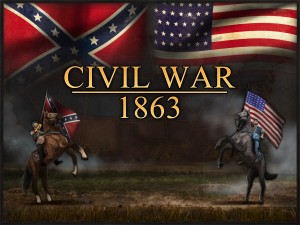 We also have seen some instances of what might be seen as “over-correction” (i.e. the case of Apple removing all apps from the App Store that bear the flag including Civil War era historical games). While some of us are glad to see the end of a symbol of racism in the South, we also recognize that the removal of the flag is something that requires nuance and precision and not wide scale erasure. The confederate flag does have a place in our history (but not on our state houses). To erase it completely erases the history of secession by Southern states and their right to hold human chattel, and as uncomfortable as that may be it is also a part of our history and has to be remembered (especially in this racially tumultuous time) if we have any hope of progressing past this point.
We also have seen some instances of what might be seen as “over-correction” (i.e. the case of Apple removing all apps from the App Store that bear the flag including Civil War era historical games). While some of us are glad to see the end of a symbol of racism in the South, we also recognize that the removal of the flag is something that requires nuance and precision and not wide scale erasure. The confederate flag does have a place in our history (but not on our state houses). To erase it completely erases the history of secession by Southern states and their right to hold human chattel, and as uncomfortable as that may be it is also a part of our history and has to be remembered (especially in this racially tumultuous time) if we have any hope of progressing past this point.
In recent days defenders of that particular flag have made the claim that the flag is not a symbol of racism in the same breath that they have thrown about racist epithets and threats (or even flown it to “welcome” an African American President of the United States). There seems to be a real lack of self-awareness in these current situations. But that brings us to this post. Why bring this up in the context of video games?
As I was looking over some of the older posts on NYMG this week I found one post in particular that talked about the flag and what it means for race and the notion of supremacy in games. In the original post “Supremacy, Confederate Flags, and Simulations: On Realizing the Power of Video Games,” I centered my discussion then on the choice of an African American student at USC Beaumont to fly the flag in his dorm room. I analyzed that situation then in terms of (mis)education (and games) and I think that this again makes a good lens through which to view many of the current debates in support of that very same flag. So here again is that post.
[Originally posted January 21, 2012]
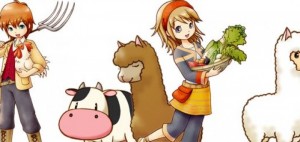 Sometimes things stick with you for a reason…bits of a comedy show, a disturbing news story, and the hundreds of hours that you spend playing farming/social simulations on a handheld device. And sometimes those things come together in a perfect storm that allow you to write a post like the one that you are about to read and hopefully make some sense. Stick with me for a bit folks and let me know how it turns out in the end. 🙂
Sometimes things stick with you for a reason…bits of a comedy show, a disturbing news story, and the hundreds of hours that you spend playing farming/social simulations on a handheld device. And sometimes those things come together in a perfect storm that allow you to write a post like the one that you are about to read and hopefully make some sense. Stick with me for a bit folks and let me know how it turns out in the end. 🙂
Several years ago Dave Chappelle brought to television a parody of just the thing Carter G. Woodson wrote about in 1933, the mis-educated Negro. Chappelle brought us the Black White supremacist, Clayton Bigsby.
https://youtu.be/u__W0Qa8v0k
Sadly, even today we see that such a phenomena does actually exist almost to the same degree. Byron Thomas, a young man at USC Beaumont decided, after taking a history class at the university, that the Confederate flag was not the symbol of hatred and oppression that most Black folks in the South (and nationwide) see it as, but rather a sign of Southern pride. He decided to hang the flag in his dorm room and only after being encourage by the university to do so, has removed it. He is now considering rehanging it.
Carter G. Woodson wrote
The so-called modern education, with all its defects, however, does others so much more good than it does the Negro, because it has been worked out in conformity to the needs of those who have enslaved and oppressed weaker peoples.
Interestingly, Chappelle’s character, Clayton Bigsby, and Byron Thomas have both come to their points of view through the American education system. Thomas in his history class and Bigsby as the sole Black child (who was told that he was White in order to make him more acceptable) in a blind school in the South.
So what the hell does this have to do with video games?
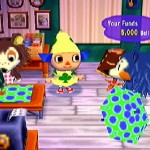
In my mind…a lot. We see racist depictions in games all of the time. AAA titles, indie games, Flash games created by some schmuck on the internet. It shouldn’t be shocking at this point…but sometimes it still gets me. Shocks me. Jars me back to the racist reality in games. For me this usually happens when I run into something in a place that I thought would be safe. This happened to me recently with Harvest Moon 3D: The Tale of Two Towns. Don’t get me wrong, I expect that some things will hold true in games like this and Animal Crossing. I know that men and women will play heteronormative gender roles. There will likely be no same sex marriage and there will be the occasional irritating comment made that is based solely on the fact that I have chosen to play a female character. This has never stopped me from wanting to play games like Animal Crossing which I logged literally hundreds of hours on for the DS. In fact I got great joy out of writing queer narratives for my neighbors (some of whom lent themselves well to it), so when I saw that there was a version of Animal Crossing coming for the 3DS I got so crazy excited that I couldn’t bear waiting without something to act as a stop gap.
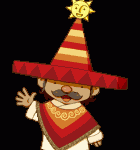 That’s where Harvest Moon 3D came in. Harvest Moon had always been to agricultural for me, but I had an itch to be scratched. I was so itchy that I even pre-ordered it just to get the little stuffed llama that now lives on my desk on campus. When the game started I was not surprised that I had to choose to be either an apparently Caucasian girl or an apparently Caucasian boy or that both were given traditional heteronormative gender roles. So I played through the game pretending to be a straight Caucasian girl looking for a straight Caucasian boy while trying to unite the farming villages. Nothing was too terribly jarring until…I went to the store. Yep, the store. The store run by the poncho and sombrero clad brothers…wait for it…Diego, Enrique, and Raul (who actually runs the rival store in the other town). While this is problematic on a number of levels it was especially jarring set in contrast to the white (washed) visages of my characters and the other NPCs in town.
That’s where Harvest Moon 3D came in. Harvest Moon had always been to agricultural for me, but I had an itch to be scratched. I was so itchy that I even pre-ordered it just to get the little stuffed llama that now lives on my desk on campus. When the game started I was not surprised that I had to choose to be either an apparently Caucasian girl or an apparently Caucasian boy or that both were given traditional heteronormative gender roles. So I played through the game pretending to be a straight Caucasian girl looking for a straight Caucasian boy while trying to unite the farming villages. Nothing was too terribly jarring until…I went to the store. Yep, the store. The store run by the poncho and sombrero clad brothers…wait for it…Diego, Enrique, and Raul (who actually runs the rival store in the other town). While this is problematic on a number of levels it was especially jarring set in contrast to the white (washed) visages of my characters and the other NPCs in town.
 So what does my trouble with Animal Crossing and Harvest Moon have to do with Dave Chappelle and Byron Thomas? Just that these are both games that are rated E for everyone and released on a handheld device. And that is the perfect equation for these games ending up in the hands of children. Children who may learn about various races, genders, and sexualities from the games that they play. We’ve had the discussions about games and education a million times. As proponents of games we emphasize the positives while acknowledging the negative (quietly), but as we see the cases of mis-education play out on the interwebs we have got to be more vigilant. We usually focus on what majority children learn about minorities through games, but what about what minority children learn about themselves? It seems ridiculous at first glance that minorities would learn negative things about themselves through various media, but when we see what happened to young Byron Thomas after taking a history class where he learned the value of the Confederate flag as a symbol of Southern (not White) Pride regardless of what he had learned as a young Black boy growing up in the South from his friends and family, it becomes more and more apparent that not only is anything possible but that we have to remain open to and aware of these possibilities.
So what does my trouble with Animal Crossing and Harvest Moon have to do with Dave Chappelle and Byron Thomas? Just that these are both games that are rated E for everyone and released on a handheld device. And that is the perfect equation for these games ending up in the hands of children. Children who may learn about various races, genders, and sexualities from the games that they play. We’ve had the discussions about games and education a million times. As proponents of games we emphasize the positives while acknowledging the negative (quietly), but as we see the cases of mis-education play out on the interwebs we have got to be more vigilant. We usually focus on what majority children learn about minorities through games, but what about what minority children learn about themselves? It seems ridiculous at first glance that minorities would learn negative things about themselves through various media, but when we see what happened to young Byron Thomas after taking a history class where he learned the value of the Confederate flag as a symbol of Southern (not White) Pride regardless of what he had learned as a young Black boy growing up in the South from his friends and family, it becomes more and more apparent that not only is anything possible but that we have to remain open to and aware of these possibilities.

